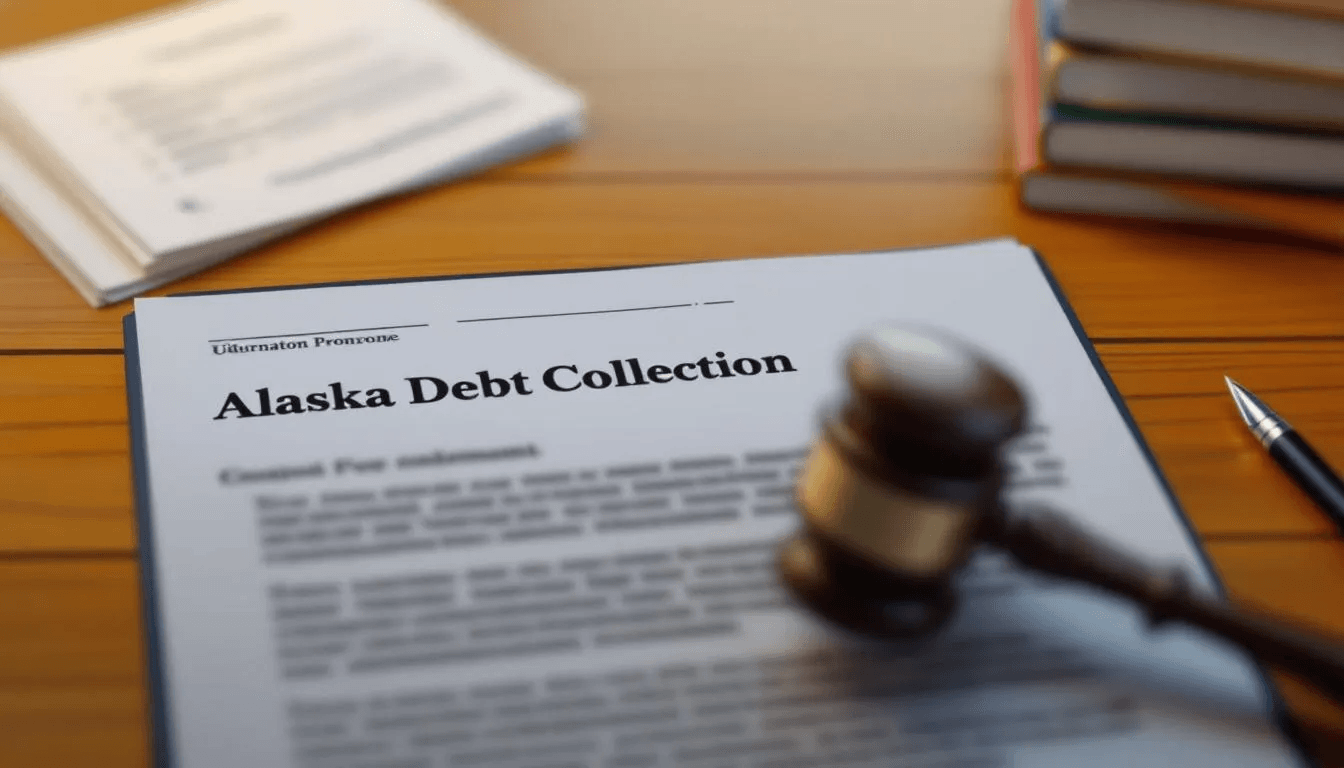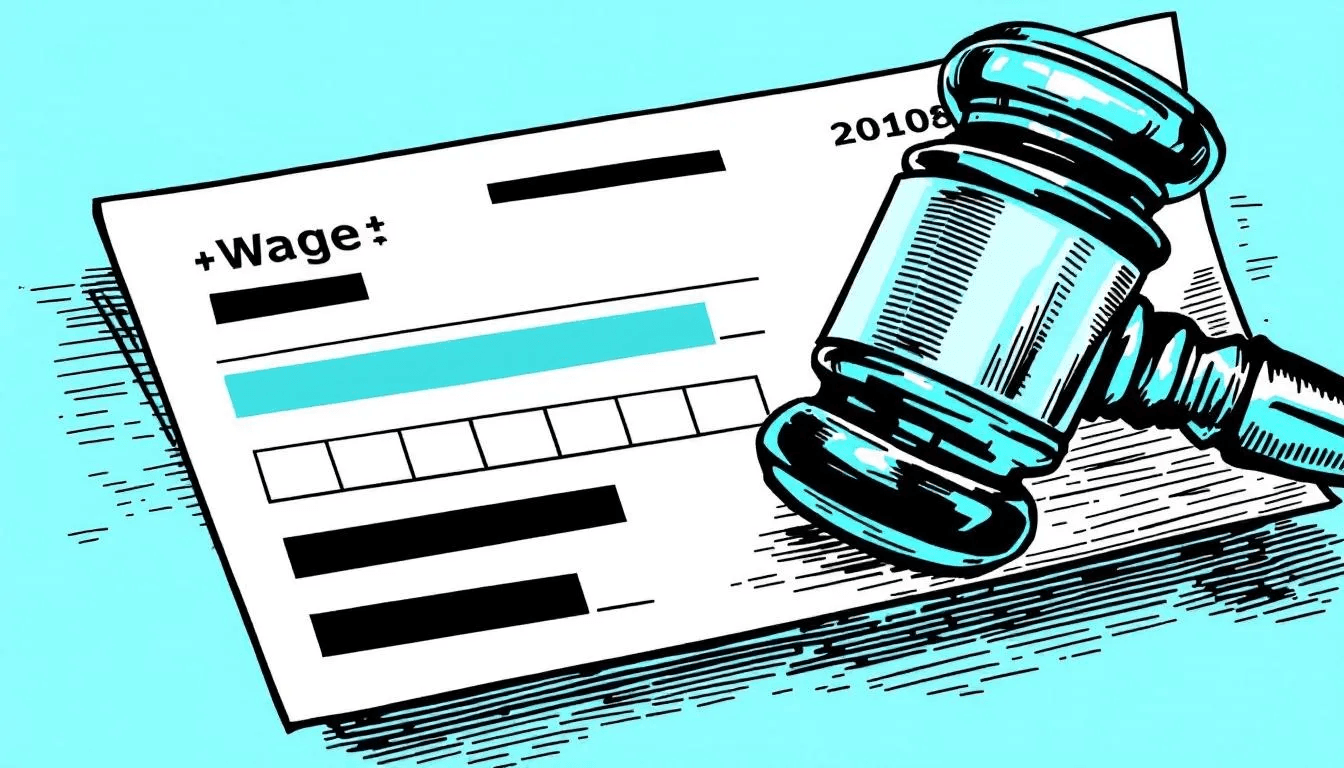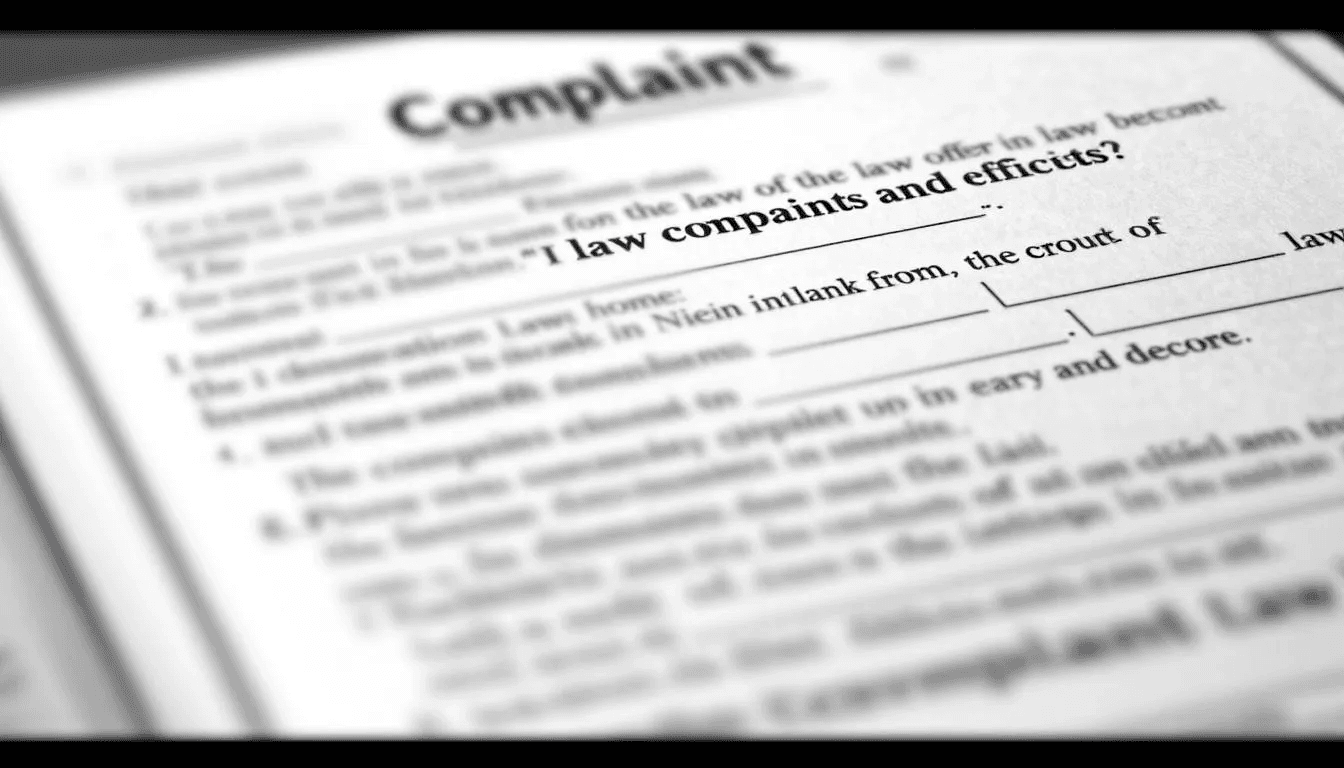Searching for information on Alaska debt collection laws? You’ve come to the right place. This article covers your rights and protections as a debtor in Alaska, outlining the crucial regulations that govern how debt collectors can operate. Whether you’re facing debt collection or want to understand the rules, we’ll help you navigate Alaska’s legal landscape.
Key Takeaways
- Alaska debt collection laws, alongside federal regulations like the FDCPA, ensure consumer protection against unfair and deceptive practices by debt collectors.
- Consumers in Alaska have specific rights, including the right to dispute debts, request verification, and cease communications with debt collectors under prescribed timelines.
- The Alaska Unfair Trade Practices and Consumer Protection Act, along with strict guidelines on prohibited debt collection practices, aims to maintain fairness and transparency in the debt collection process.
Overview of Alaska Debt Collection Laws


Alaska debt collection laws, in conjunction with federal regulations like the FDCPA, play a crucial role in safeguarding consumers from deceptive practices by debt collectors. These laws are designed to ensure that debt collectors operate within a framework that promotes fairness and transparency, protecting consumers from harassment and unlawful tactics.
The Alaska statutes provide a legal backbone that complements federal regulations, making sure that consumers in Alaska have robust protections. Whether dealing with a collection agency or an individual debt collector, knowing the Alaska court system and the specific alaska statute that applies to debt collection cases will empower you to stand up against any unfair practices.
Fair Debt Collection Practices Act (FDCPA)
The Fair Debt Collection Practices Act (FDCPA) is a federal law enacted to ensure fair treatment of consumers in debt collection processes. It aims to eliminate abusive practices and promote consistent consumer protection across all states. Understanding the FDCPA is crucial as it sets the standard for what is considered acceptable behavior by debt collectors.
Under the FDCPA, consumers have several key rights:
- The right to dispute a debt and request verification within a specified period.
- The right to stop contact from debt collectors if you wish.
- Protection from debt collectors engaging in unfair, abusive, or deceptive practices, ensuring they cannot harass, oppress, or deceive you.
This federal law is complemented by state laws, ensuring a complete protective shield for consumers.
A ‘debt collector’ under the FDCPA includes individuals or entities that regularly collect debts owed to others. This broad definition ensures that a wide range of collection activities falls under the purview of the FDCPA, providing extensive protection for consumers against unfair debt collection practices.
Alaska Unfair Trade Practices and Consumer Protection Act
The Alaska Unfair Trade Practices and Consumer Protection Act works hand in hand with federal regulations to prohibit unfair debt collection actions. This act ensures that debt collectors cannot engage in deceptive practices or lie when attempting to collect a debt.
Debt collectors in Alaska have the following requirements and timelines:
- They must provide verification information about the debt within five days of initial contact.
- Consumers have a 30-day window to dispute a debt after receiving this validation information.
- If the debt is disputed in writing within this 30-day period, the collector must halt all collection efforts until they respond with the required information.
A validation notice must include the creditor’s name and the total amount owed. Verify the legitimacy of the debt collector through specific details is crucial. This ensures transparency and provides consumers with the necessary information to make informed decisions about their debts.
Prohibited Debt Collection Practices in Alaska


In Alaska, debt collectors are prohibited from engaging in practices that harass or intimidate consumers. This includes threats of violence, profane language, or repeated calls intended to annoy or harass. Debt collectors must also avoid making false claims about legal actions, such as wage garnishments or imprisonment, to coerce payment.
There are strict guidelines regarding the times at which debt collectors can contact you. They are not allowed to reach out before 8 AM or after 9 PM, ensuring that your daily life is not unduly disrupted. If you request in writing to stop being contacted, the debt collector must cease communication, except to inform you about specific legal actions.
These prohibitions are designed to protect consumers from abusive and deceptive practices, ensuring that debt collection activities are conducted fairly and respectfully, free from unfair and deceptive practices and abuse, as permitted.
Wage Garnishment Laws in Alaska


Wage garnishment in Alaska is subject to strict limitations to protect consumers from undue financial hardship. The maximum amount that can be garnished from your wages is $473 per week, or $743 if you are the sole earner in your household. This ensures that a significant portion of your income remains available to meet your essential needs.
Before garnishing your wages, judgment creditors must obtain a court ruling, except for certain obligations like taxes and child support, which allow direct garnishment. Additionally, an employer in Alaska cannot terminate an employee due to a single wage garnishment, although federal protections do not extend to multiple garnishments.
Child support garnishments have the following conditions:
- Capped at 40% of disposable earnings.
- Increase to 50% if health insurance is provided.
- Garnishments continue until the debt is settled or an exemption is successfully claimed through the court.
Responding to Debt Collection Attempts
Knowing your rights and responding effectively when a debt collector contacts you is crucial. You have the right to receive written verification of the debt within five days of the initial contact. This verification should include details such as the amount owed and the name of the creditor.
If you dispute the validity of the debt, you can request verification, which will halt collection efforts until the debt is verified. Under the FDCPA, if you request no further contact, the debt collector must cease communication unless informing you about specific legal actions. This ensures that you are not subjected to continuous harassment and have the opportunity to resolve the debt fairly.
Accurate debt information ensures transparency in the collection process, allowing you to make informed decisions and take appropriate actions.
Handling Debt Collection Lawsuits in Alaska
If you are served with a debt collection lawsuit in Alaska, it’s essential to respond promptly and appropriately. You must file an ‘Answer’ within 20 days of receiving the complaint, where you can agree, disagree, or state that you have no knowledge of the claims made against you. This document is crucial as it allows you to present your side of the story and avoid a default judgment in your response.
In your Answer, you can include affirmative defenses, which are reasons that may prevent the plaintiff from winning the case. Additionally, if you have a separate legal claim against the plaintiff, you can file a counterclaim within your Answer. Failing to file an Answer within the specified timeframe may result in a default judgment against you.
Legal representation strengthens your case by providing expertise on procedural nuances and potential defenses related to criminal charges. An attorney offers strategic advice, considering legal and financial implications, helping you navigate the legal process effectively.
Statute of Limitations on Debt in Alaska
Understanding the statute of limitations on debt is crucial for both consumers and debt collectors. Alaska statutes outline specific time limits for collecting debts, which vary based on the type of debt. These time limits are detailed in Alaska Statutes under AS 09.10.
For contract actions in Alaska, the statute of limitations is three years. This includes lawsuits to collect debts from written contracts. The specific time limits for different types of debt ensure that debt collection efforts are conducted within a reasonable timeframe, providing protection for consumers against indefinite liability.
Judgments in Alaska have a statute of limitations of ten years before they require renewal for collection.
Reporting Abusive Debt Collection Practices


If you experience abusive debt collection practices, it’s important to report them to the appropriate authorities. Consumers can file complaints with:
- The Consumer Protection Unit of the Alaska Department of Law
- Regulatory agencies such as the (CFPB)
- The Federal Trade Commission (FTC)
The Consumer Protection Unit reviews complaints to identify patterns of unfair behavior that may necessitate formal investigations. When submitting a complaint, include documentation such as contracts, invoices, or receipts related to the incident. The filing process may take several weeks to months, depending on the nature of the complaint and the unit’s workload.
Hiring an Attorney for Debt Collection Cases
Hiring an attorney can provide critical support if you are facing violations of the Fair Debt Collection Practices Act (FDCPA). The Consumer Protection Unit does not offer legal advice or representation, so seeking legal counsel can help you understand your rights and pursue claims. An attorney can assist in negotiating settlements, potentially leading to more favorable terms compared to direct negotiations with creditors.
Attorneys have access to online resources and tools that a person may lack, aiding in the collection of evidence and legal documents related to property documents. Engaging in settlement talks is possible at any point, either directly with the plaintiff or through mediation, as they intend to resolve the matter efficiently.
When proposing a settlement, consider offering a pay plan or a reduced amount based on your financial situation. After filing your Answer, a pre-trial conference may be scheduled to assess the case’s status and discuss potential settlement options. If the case proceeds, it may resolve through settlement, a trial, or a motion for summary judgment if both parties agree on the facts.
Protecting Your Rights Against Unfair Debt Collection


Protecting your rights against unfair debt collection practices involves maintaining detailed records of all communications with debt collectors. This includes dates, times, and content of conversations, which can support any legal actions you may take. Formally requesting that debt collectors cease communications is also crucial, as they must comply with this request in writing.
Consumers have the option to send a cease-and-desist letter to debt collectors, which legally obligates them to stop contacting you unless they initiate legal action. Taking these steps ensures that you are not subjected to ongoing harassment and can have the debt addressed in a fair and transparent manner.
Summary
In summary, understanding Alaska’s debt collection laws and the protections available under federal and state regulations is crucial for navigating debt collection processes. By knowing your rights, how to respond to debt collectors, and the legal avenues available to you, you can effectively manage your debts and protect yourself against unfair practices. Take proactive steps to assert your rights and seek legal counsel if needed to ensure a fair resolution.
Frequently Asked Questions
What should I do if a debt collector contacts me?
If a debt collector contacts you, promptly request written verification of the debt within five days and dispute it if you believe it is incorrect. Taking these steps will help you protect your rights and ensure clear communication regarding the debt.
Can a debt collector contact me at any time?
Debt collectors cannot contact you at any time; they are restricted from calling before 8 AM or after 9 PM. It is important to be aware of these rights to protect yourself from harassment.
What is the statute of limitations for debt collection in Alaska?
The statute of limitations for debt collection in Alaska is three years for contract actions and written contracts. It is crucial to act within this timeframe to preserve your rights.
How can I report abusive debt collection practices?
You can report abusive debt collection practices by filing a complaint with the Consumer Protection Unit of the Alaska Department of Law, the (CFPB), or the Federal Trade Commission (FTC). These agencies can help address the issue and protect your rights.
Should I hire an attorney for a debt collection case?
Hiring an attorney for a debt collection case is advisable as they can provide essential support, clarify your rights, and assist in negotiating settlements. Their expertise can significantly improve your chances of achieving a favorable outcome.

